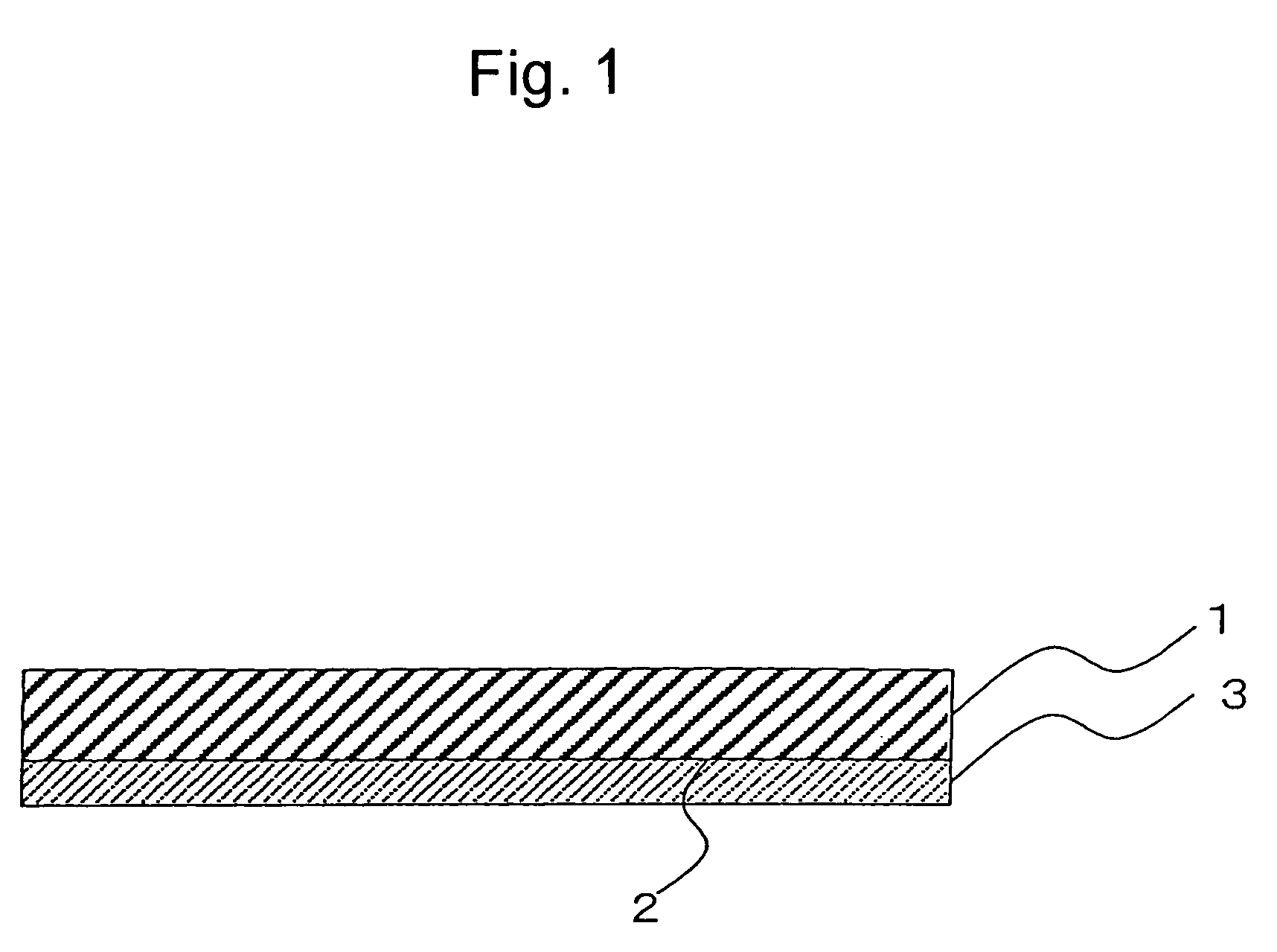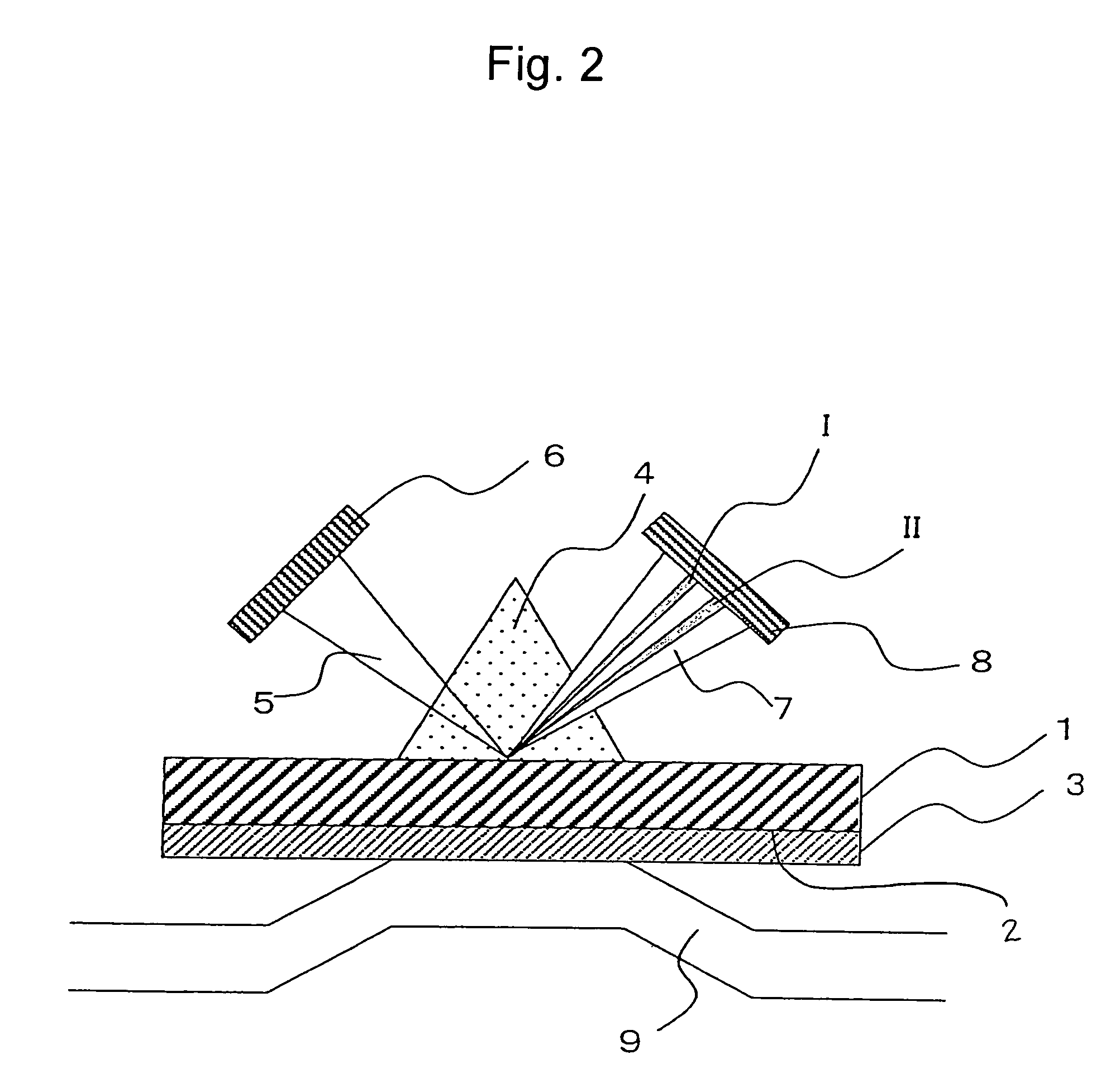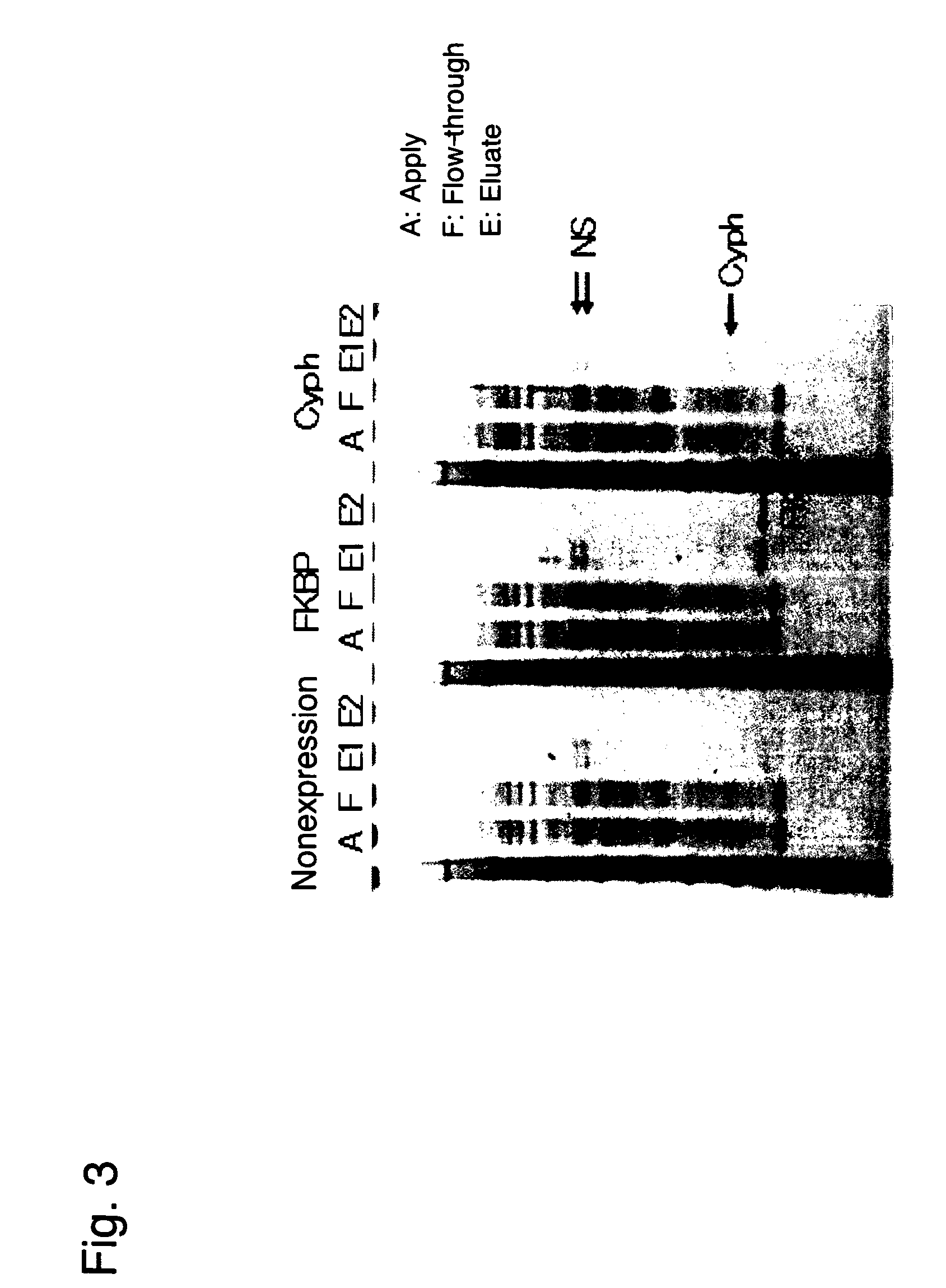Method for immobilizing proteins
a technology of immobilizing proteins and proteins, applied in the field of immobilizing proteins, can solve the problems of acidic proteins not being able to be immobilized, protein deactivation is likely, and unstable immobilization
- Summary
- Abstract
- Description
- Claims
- Application Information
AI Technical Summary
Benefits of technology
Problems solved by technology
Method used
Image
Examples
example 1
[0083]As Example 1, a method for FLAG tag purification of very small amounts of proteins expressed in a wheat germ cell-free system is described.
[0084]In this example, Cyph was employed as a protein. cDNA of this protein was subcloned into a pEU3-NII plasmid vector for a wheat germ cell-free system via a genetic engineering technique to prepare a fusion protein in which the N terminus thereof was His- and FLAG-tagged. In this example, the FLAG tag refers to the first tag portion of the present invention. The nucleotide sequences and the amino acid sequences of the His tag and the FLAG tag (including initiation codons) are as shown below.
[0085]
ATG CAT CAC CAT CAC CAT CAC GAC(SEQ ID NO: 3)TAC AAG GAC GAC GAT GAC AAAMet His His His His His His Asp(SEQ ID NO: 4)Tyr Lys Asp Asp Asp Asp Lys
[0086]Proteios (Toyobo Co., Ltd.) was employed as the wheat germ cell-free system.
[0087]mRNAs and proteins were synthesized from 5 μg of expression plasmid for the wheat germ cell-free system constructe...
example 2
[0089]As Example 2, a method for concentrating proteins on a sensor chip with the use of a His tag (affinity concentration) following FLAG tag purification of very small amounts of proteins expressed in the wheat germ cell-free system according to the present invention is described.
[0090]In this example, Cyph was employed as a protein. In the same manner as in Example 1, cDNA of this protein was subcloned into a pEU3-NII plasmid vector for a wheat germ cell-free system via a genetic engineering technique to prepare a fusion protein in which the N terminus thereof was His- and FLAG-tagged. The term “FLAG tag” refers to the first tag portion and the term “His tag” refers to the second tag portion in the present invention. Proteios (Toyobo Co., Ltd.) was employed as the wheat germ cell-free system. The NTA sensor chip (a Biacore chip, Biacore) was employed as a sensor chip. This NTA sensor chip comprises dextran provided on the substrate. The Biacore 3000 (Biacore) was employed as an a...
example 3
[0094]As Example 3, a method for FLAG tag-purifying very small amounts of proteins expressed in the wheat germ cell-free system via the method of the present invention and then immobilizing the purified proteins on the sensor chip via covalent biding (amine coupling) and with the use of a His tag is described.
[0095]In this example, Cyph was employed as a protein. In the same manner as in Example 1, cDNA of this protein was subcloned into a pEU3-NII plasmid vector for a wheat germ cell-free system via a genetic engineering technique to prepare a fusion protein in which the N terminus thereof was His- and FLAG-tagged. The term “FLAG tag” refers to the first tag portion and the term “His tag” refers to the second tag portion in the present invention. Proteios (Toyobo Co., Ltd.) was used as the wheat germ cell-free system. The NTA sensor chip (a Biacore chip, Biacore) used in Example 2 was employed as a sensor chip. The Biacore 3000 (Biacore) was employed as an analyzer.
[0096]In the sam...
PUM
| Property | Measurement | Unit |
|---|---|---|
| flow rate | aaaaa | aaaaa |
| surface plasmon resonance | aaaaa | aaaaa |
| SPR | aaaaa | aaaaa |
Abstract
Description
Claims
Application Information
 Login to View More
Login to View More - R&D Engineer
- R&D Manager
- IP Professional
- Industry Leading Data Capabilities
- Powerful AI technology
- Patent DNA Extraction
Browse by: Latest US Patents, China's latest patents, Technical Efficacy Thesaurus, Application Domain, Technology Topic, Popular Technical Reports.
© 2024 PatSnap. All rights reserved.Legal|Privacy policy|Modern Slavery Act Transparency Statement|Sitemap|About US| Contact US: help@patsnap.com










